Here are 5 things you didn't know about Bill Cochran, Topeka's interim city manager
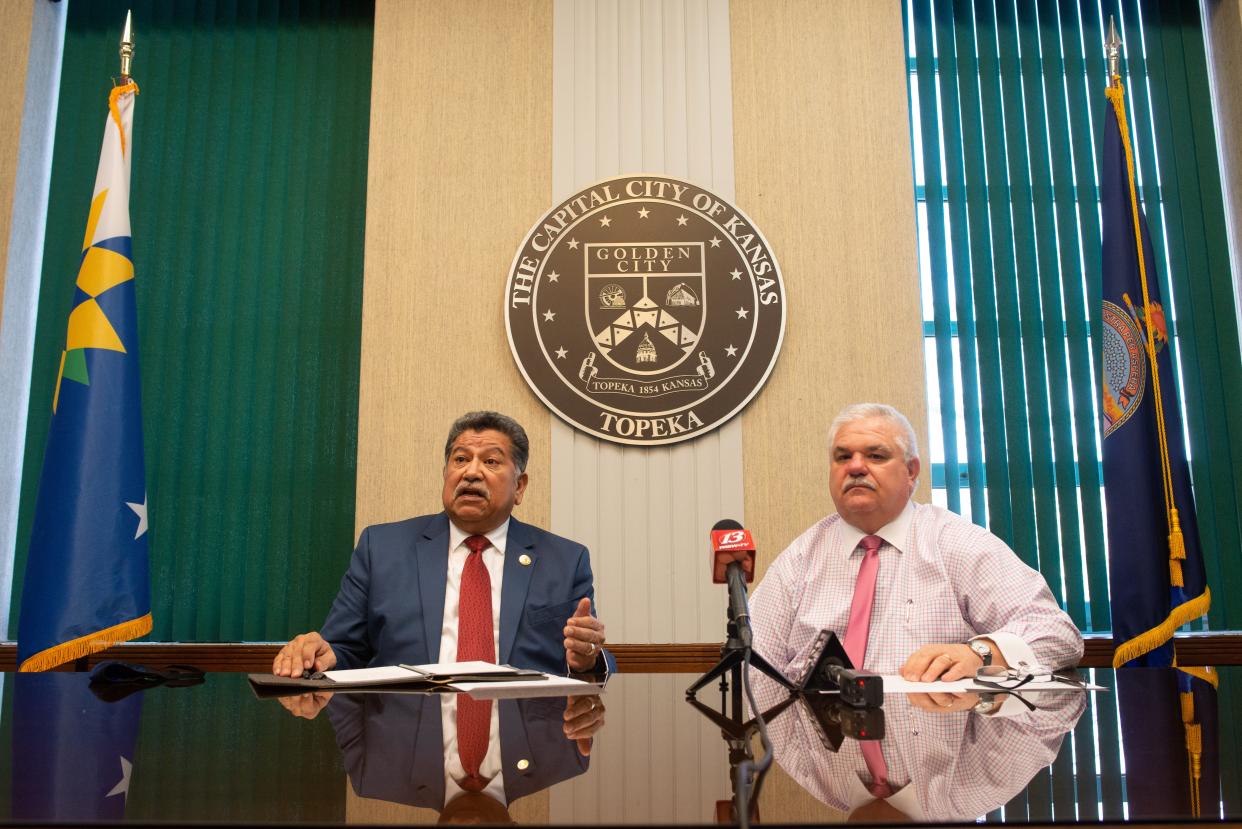
Interim Topeka city manager Bill Cochran has worn a lot of hats.
Cochran has served as Topeka's police chief, worked undercover as a narcotics officer, been a decorated military veteran, gone back to school in his 40s to earn a master's degree and teamed up with his wife, Kelley, to teach marriage preparation.
The Topeka City Council has authorized negotiations with its selection for the next city manager. Cochran will return to his role as chief of staff after the new city manager is in place.
Here are five fun facts about Cochran:
1. He was an undercover narcotics cop
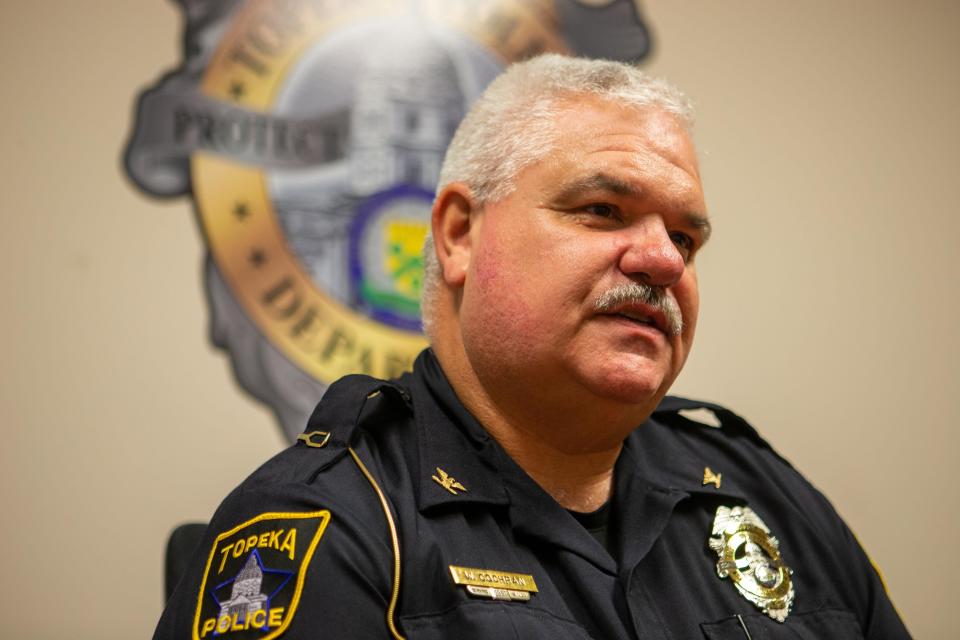
When the Topeka Police Department hired Cochran, it had a standard practice of identifying one officer from each recruit class to initially work deep under cover to buy illegal drugs. Cochran was picked to do that in 1987.
He began wearing an earring and hanging out at bars, playing the role of a "rich kid" who dabbled in illegal drugs while meeting people who sold him narcotics many times, Cochran told The Capital-Journal this past week.
He didn't carry a gun or a badge, he said.
More: Topeka initiates contract talks with finalist for city manager; identity not revealed
After about one year under cover, Cochran and the department's narcotics unit teamed up to make individual arrests — all in the same night — of each of the 13 people who had sold him illegal drugs at least three times.
"Back then, you had to have three purchases for them to be legitimate cases," Cochran said.
The 13 arrests were the most ever by any officer in the undercover program for rookies while only one such officer — Randy Listrom, Cochran's supervisor at the time — had ever bought more illegal drugs as part of that program than Cochran had, he said.
The program was discontinued after the following recruit class, he said.
2. He lived near 'In Cold Blood' house
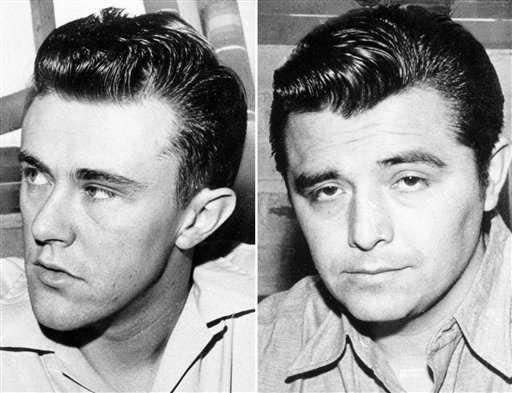
Cochran's family moved in 1971 to the small southwest Kansas community of Holcomb, about seven miles west of Garden City, where they lived when he was in the first, second and third grades.
At the time, Cochran said, Holcomb was still reeling from the 1959 murders of four members of the Herbert Clutter family at their home south of town by Richard Hickock and Perry Smith, who mistakenly thought the Clutters kept a great deal of money there.
Those murders and the subsequent hangings of Hickock and Smith in 1965 became the subject of Truman Capote’s celebrated 1966 true crime novel, “In Cold Blood.”
More: Eastern Kansas will see dangerously high temperatures by 2053, new climate study predicts
One fun part of living at Holcomb was spending time at the Arkansas River, Cochran said.
'The Arkansas River was dry, so you could dig holes and water would come up," he said. "But the interesting thing was that to get to the river, we had to ride our bikes past the Clutter house. And so, as a kid, you always had to ride a lot faster as you went past the driveway, because you didn't want to get murdered, right? That's the thinking of a kid."
3. He's a decorated war veteran
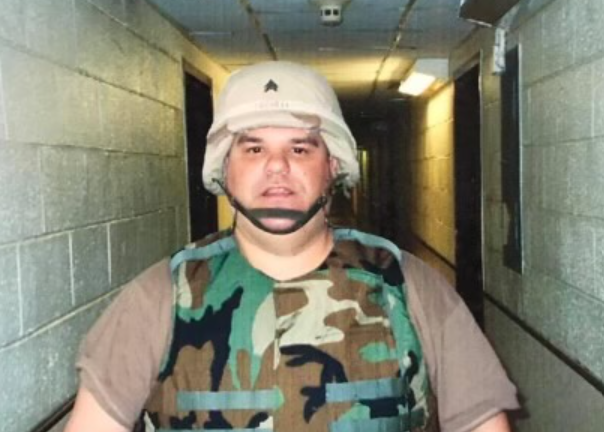
Cochran joined the Kansas Army National Guard in February 1985 and served until July 2005, rising to the rank of first lieutenant.
In about 2003, he resigned his officer's commission and was reassigned as a sergeant to the 2nd Battalion of the Kansas Army National Guard's 130th Field Artillery Brigade.
That battalion was then activated in December 2003 to fight in the Iraq War, where it carried out various force protection missions in and around Baghdad.
Cochran was awarded a Joint Service Commendation Medal with a "V" device for valor shown in combat in Iraq, he said.
He returned home with his unit in February 2005.
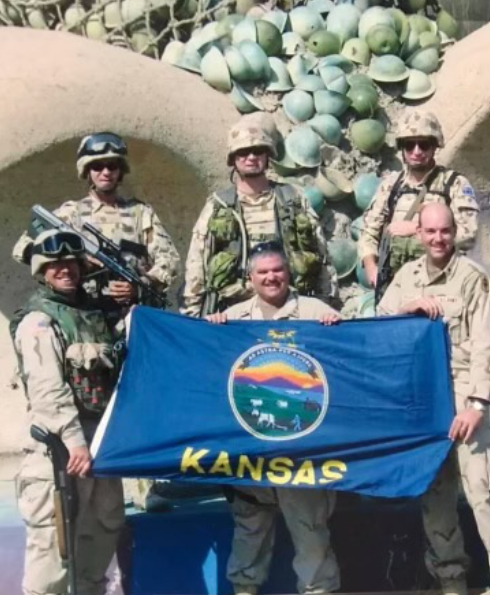
4. He went back to school in his 40s
Cochran's deployment put him in a position to earn a master's of business administration degree, which he said he'd already been thinking about doing.
His time on active duty qualified him for the post-GI Bill "kicker" education financing benefit, which became available to some members of the U.S. military who were on active duty after Sept. 10, 2001.
"Now the finances were there," he said.
Cochran was in his 40s and hadn't attended college since graduating in 1987 from Washburn University.
More: Split peas, pistachios and garbanzo beans — food pantry gets creative in sharing recipes
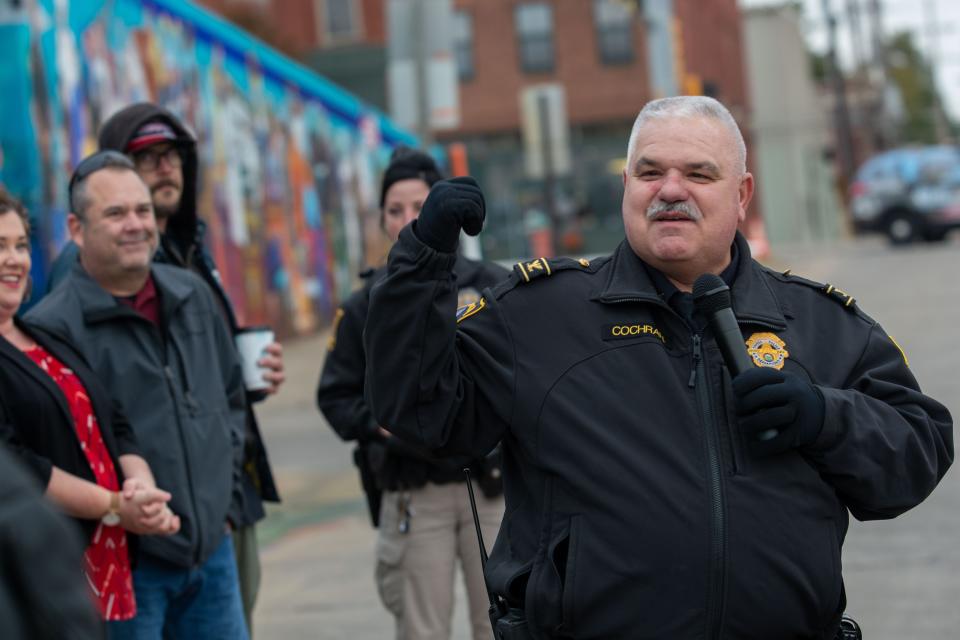
Still, he said, scholarship money through the GI Bill basically covered his costs to earn an MBA from Wichita-based Friends University.
He started in 2008 attending classes at a Friends University satellite office in southwest Topeka and finished in 2010.
Having the MBA on his resume proved beneficial to him as he sought promotion at the Topeka Police Department, eventually becoming police chief, Cochran said.
Kelley Cochran also has a master's degree, as do two of their three adult daughters, while the other is working on hers, Bill Cochran said.
5. He has taught marriage preparation
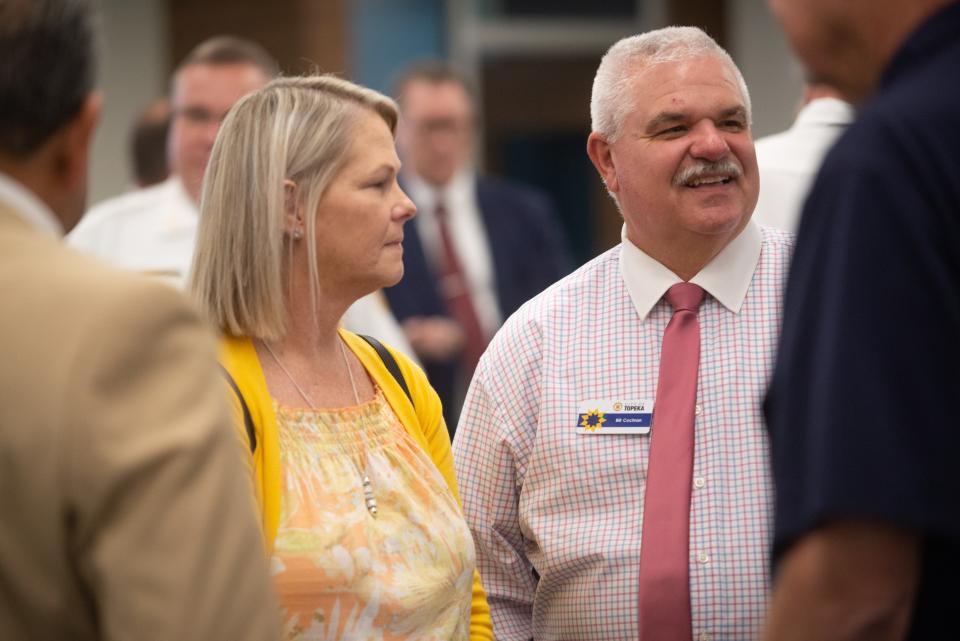
Bill and Kelley Cochran have been married for 35 years. In about 2015, Bill Cochran said, they began teaching marriage preparation classes to engaged couples at St. Matthew's Catholic Church, where they are members.
The course provides valuable skills for a successful marriage, allows for participants to reflect as a couple on their relationship and lays out the Catholic Church's vision for sacramental marriage, according to the website of the Roman Catholic Archdiocese of Kansas City in Kansas.
Bill Cochran said he and his wife haven't taught classes in the past two years, as he's been serving first as police chief and then as the city of Topeka's chief of staff and interim city manager.
Tim Hrenchir can be reached at threnchir@gannett.com or 785-213-5934.
This article originally appeared on Topeka Capital-Journal: Here are 5 fun facts regarding interim city manager Bill Cochran

